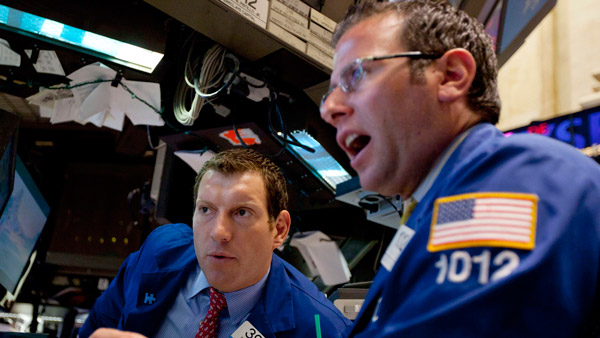
 Traders at the NYSE. (Photo: AP)
Traders at the NYSE. (Photo: AP)
One of the toughest years for financial markets in half a century got appreciably worse Tuesday, with simmering weakness across assets boiling over to leave investors with virtually nowhere to hide.
Stocks buckled for a second day, sending the S&P 500 careening toward a correction. Oil plumbed depths last seen a year ago, while credit markets — recently impervious — showed signs of shaking apart. Bitcoin is in a freefall, while traditional havens like Treasuries, gold and the yen stood still.
Add it all up — the 2 percent drop in equities, oil's 6 percent plunge, the downdraft in corporate bonds — and markets ended up doling out one of the worst single-session losses since 2015. The S&P 500 erased its gain for 2018, oil tumbled to a one-year low and and an ETF tracking junk bonds capped its worst streak of declines since 2014.
"While there's still no 'panic in the streets,' most traders are unconvinced that the selling will slow down anytime soon," said Larry Weiss, head of trading for Instinet LLC in New York. "The flight to quality is now a flight to cash. It's tough to convince anyone that now is the time to put money to work."
Behind the harmonizing losses is dread for the future. Corporate earnings, the fuel for the longest bull market ever recorded in U.S. stocks, appear to have peaked, and President Donald Trump's trade war shows no sign of abating. As grim as the message from markets has been, Jay Powell's Federal Reserve shows no sign of easing back on the interest rate hikes that create nightmares for holders of some $5 trillion in corporate bonds that have been sold by S&P 500 companies in the past decade.
Signs of unwinding multiplied. Hedge funds, who dove back into tech stocks at the end of October, have turned net sellers again this month, with the group accounting for the most selling among major industries, client data compiled by Goldman Sachs showed. Meanwhile, they boosted bearish bets against Internet software developers and electronic equipment makers.
"There's a lot of money looking to be invested and not a lot of places that look appealing enough," said Bruce McCain, chief investment strategist at KeyBank. "What's causing the decline across the asset classes is this: are we going to slide into a recession or are we going to achieve lower growth rate but one that's more sustainable?"



